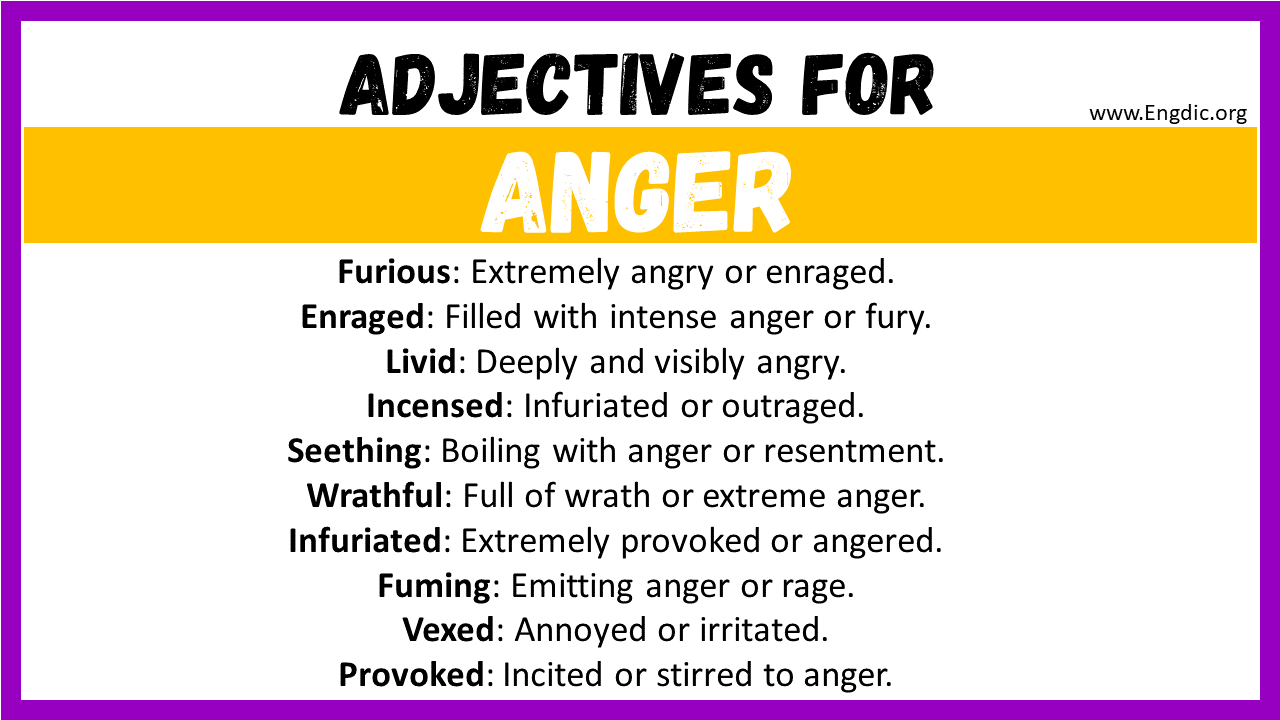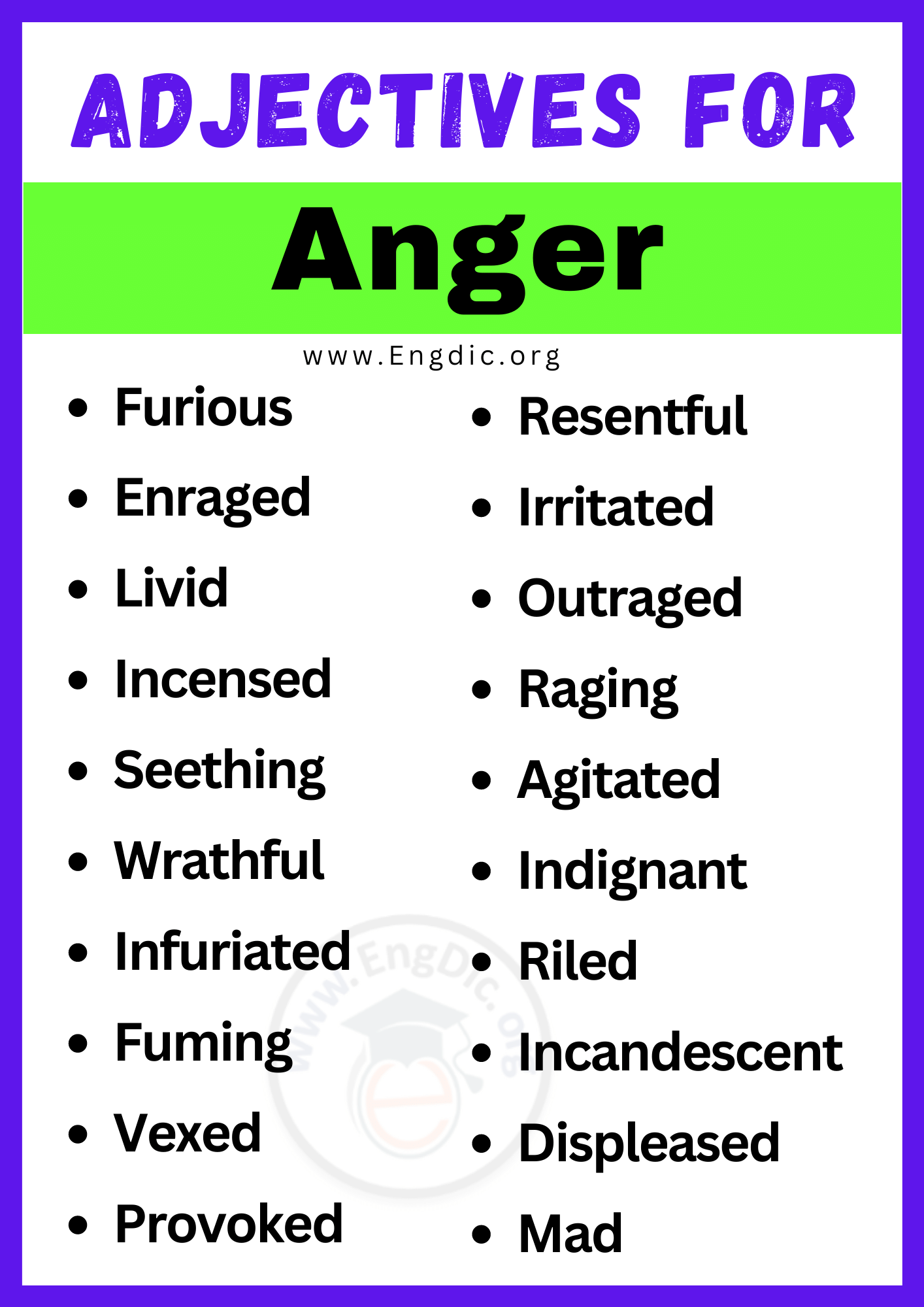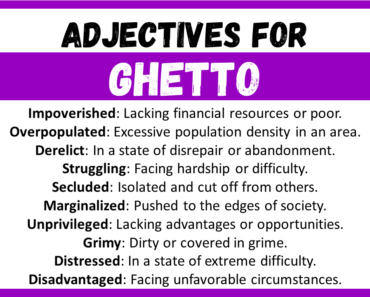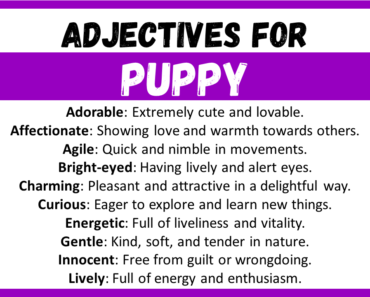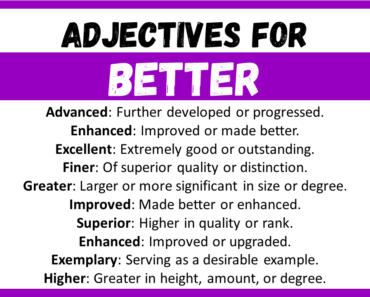Anger, a powerful emotion experienced by everyone at some point, is characterized by feelings of intense displeasure and frustration. When anger arises, it can be challenging to find the right words to describe this overwhelming emotion. Words such as “rage,” “fury,” and “outrage” encapsulate the intensity and fire within, while “irritation,” “annoyance,” and “resentment” denote a milder form of anger. Exploring this spectrum of anger-related vocabulary enables us to better express and understand our own emotional states, fostering healthier communication and self-awareness.
Adjectives for Anger
Here are the 20 Most Popular adjectives for anger:
- Furious
- Enraged
- Livid
- Incensed
- Seething
- Wrathful
- Infuriated
- Fuming
- Vexed
- Provoked
- Resentful
- Irritated
- Outraged
- Raging
- Agitated
- Indignant
- Riled
- Incandescent
- Displeased
- Mad
Words to Describe Anger With Meanings
- Furious: Extremely angry or enraged.
- Enraged: Filled with intense anger or fury.
- Livid: Deeply and visibly angry.
- Incensed: Infuriated or outraged.
- Seething: Boiling with anger or resentment.
- Wrathful: Full of wrath or extreme anger.
- Infuriated: Extremely provoked or angered.
- Fuming: Emitting anger or rage.
- Vexed: Annoyed or irritated.
- Provoked: Incited or stirred to anger.
- Resentful: Feeling bitter or indignant anger.
- Irritated: Annoyed or bothered.
- Outraged: Extremely angered or offended.
- Raging: Exhibiting intense anger or fury.
- Agitated: Disturbed or upset, often emotionally.
- Indignant: Expressing strong displeasure or anger.
- Riled: Annoyed or irritated.
- Incandescent: Glowing or intense with anger.
- Displeased: Not pleased or satisfied, somewhat angry.
- Mad: Crazy with anger or rage.
Example Sentences for Anger Adjectives
- She was furious when she found out.
- He became enraged at the unfair treatment.
- The customer was livid about the poor service.
- She was incensed by his disrespectful comments.
- His silence masked a seething anger within.
- The king’s subjects feared his wrathful
- The students were infuriated by the sudden change.
- The boss was fuming after discovering the mistake.
- He felt vexed by the constant interruptions.
- The reckless driver provoked other motorists on the road.
- She remained resentful of her friend’s betrayal.
- His constant nagging left her irritated and frustrated.
- The community was outraged by the corruption scandal.
- The protesters were raging against the government’s actions.
- Her agitated gestures indicated her anger and frustration.
- The employee’s indignant response caught everyone off guard.
- The persistent noise riled him up.
- His face turned incandescent with anger.
- She was displeased with the final decision.
- The unexpected news left him mad with anger.
Explore More Words:
FAQ’s
How to describe anger in writing?
In writing, anger can be described using powerful words like “fury,” “rage,” or “outrage,” highlighting the intensity and fire within the emotion.
What is a word for extreme anger?
A word for extreme anger is “wrath,” which signifies intense rage or fury.
Is very mad an adjective?
Yes, “very mad” is an adjective phrase used to describe someone who is extremely angry or furious.
